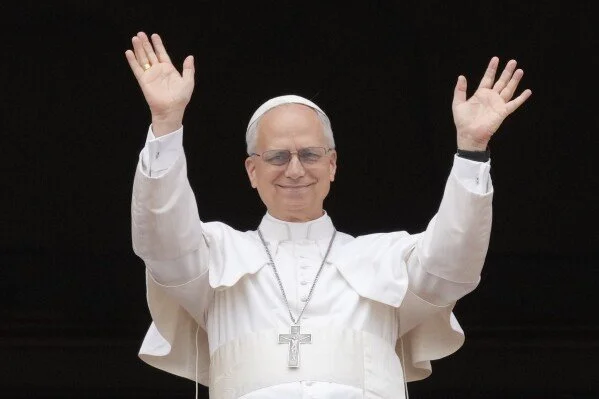God’s love is present, but there is no sin. God’s love, however, loses is salvific and redemptive value if sin is absent. No sin, no gospel. That is why sin must maintain a primary place in the gospel narrative. In all that Leo XIV has mentioned and referenced in his short papacy, sin is absent. Time will tell if that changes or not.
Read MoreThe subject of dialogue in modern-day Roman Catholicism highlights with clarity the unresolved issues of the “Roman” and “Catholic” natures of the Church. On the one hand dialogue desires to be “Roman.” It is an essential tool for evangelization. Through it the Church leaves its places of comfort and it goes forth and proclaims the gospel and makes disciples of Christ. It recognizes the importance of defining the distinctives of the Christian faith. On the other hand, dialogue is very “Catholic.” It highlights the fraternity and brotherhood of all mankind. It celebrates its commonality and affirms that which is good in humanity and its various religious expressions. It avoids discussion of Jesus and sin and refers to god generically.
Read MoreThere is an analogous case to be made in regard to doctrine within the Roman Catholic Church. Doctrine in Roman Catholicism develops, or evolves, over time. It is organic and develops in order to better respond to the most current culture. In this sense it develops in order to “survive and reproduce itself.” The discussion to be had, however, is if that development in doctrine is micro or macro in nature. That is, is it still identifiable with its previous version, or has it changed entirely and become a different and new doctrine? The Roman Catholic Church will argue that it is the former, but at times we are faced with contrasts in Roman Catholicism that challenge that claim.
Read MoreBack in 2014 Francis warned against innovation in pastoral care that gives birth to relativism. This is a grave danger in that it hides Jesus and truth from man. That is indeed true, but it is difficult to see how what has transpired since 2014 in the Pope’s papacy has not promoted relativism. If we are all brothers and God’s love is the same for everyone regardless of their beliefs, and if all religions are to be valued for the truth they contain, what room is left for the exclusive truth claims of the gospel of Jesus Christ (Acts 4:12; John 14:6)?
Read MoreMissiologists have been debating the following scenario for centuries. A missionary finds him or herself in a foreign context with foreign religions and pagan practices. How does he/she present the gospel to the people, their culture, and their worldview? The answer depends on how foreign religions are viewed and understood. For a Roman Catholic response to this important question, Pope Pius XII's 1951 encyclical Evangelii Praecones is extremely insightful. While it predates the Second Vatican Council by more than a decade (1962-1965), it accurately represents traditional Thomist Roman Catholic theology concerning this matter.
Read MoreHow can one focus on what unites people of different faiths, while also insisting on the proclamation of salvation in Christ, the only Mediator between God and man? How can one seek out shared convictions, while not diminishing the Church's commitment to evangelization? These juxtapositions, when understood in the light of Scripture, are simply not compatible. This is a serious problem, and it is poor pastoral advice.
Read MoreThis is the title of a recent book by Francesco Celestino, instructor of pastoral theology and catechism at San Bonaventura in Rome, Italy. The book offers a fresh reflection on the pastoral life of the Catholic Church in light of Pope Francis's 2013 encyclical Evangelii gaudium. A Church that desires encounter is a church that wants to be near to others and accompany them in life, being ever aware that dialogue with others is key to drawing them closer to God. A Church that desires encounter, then, is a church in constant dialogue.
Read More







